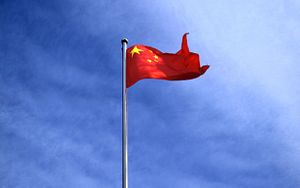It is not a good time to be a trader doing business between China and Canada.
The fallout between the Chinese and Canadian governments over the arrest of Huawei chief financial officer Meng Wanzhou has leaped from the political to the economic realm. After arresting Canadian citizens in China as retaliation for Meng’s arrest, China has decided to go after Canadians selling to the Chinese market.
On March 6, CBC reported that the Foreign Ministry of China had announced the suspension of canola imports from a Canadian firm due to the presence of dangerous pests in the canola. The report was clear about the pest rationale being unconvincing, instead calling the move a political one related to the arrest of Meng. As proof, the CBC cited previous instances when China temporarily halted Norwegian and British imports for political actions that the Chinese government found unwelcome.
But if the traders feel their business is being hijacked the Chinese government’s political agenda, they should still count themselves lucky that they don’t have physical assets in China. Canadian canola farmers, despite losing their biggest market in China, can still sell their products at a discount to other markets. The same cannot be said of foreign firms that invested in a physical presence in China, only to find the market turning against them after political fallout.
How much the foreign investor is at the mercy of political conditions in China can be best illustrated by the fate of Lotte Group. The 2017 deployment of the United States’ THAAD missile defense system on Lotte-owned land in South Korea led to a concerted effort among Chinese citizens to boycott the group’s Lotte supermarket outlets in China, culminating in a plan for the company to completely exit China by selling off its 114 stores. The Chinese government played an overt role in Lotte’s demise in China by shutting down Lotte outlets for supposed safety violations to weaken the firm.
Lotte is by no means the only foreign firm seeing its investments taking a hit because of the home country’s spat with the Chinese government. In 2012, anti-Japanese protests hurt Toyota and other Japanese carmakers in China while the recent issues over Meng’s arrest have led to fears of Canadian retail firms in China facing decreased sales.
In essence, the Chinese government is leveraging the lucrative Chinese market as a way to pressure foreign firms to lobby their governments for more pro-China foreign policies. By weaponizing access to the Chinese market, China has made stable commercial relationships conditional on friendly political ones. By using non-policy-related means, such as tacitly supporting popular boycotts against certain brands, to detrimentally affect sales, the Chinese government introduces worrisome volatility to the operations of foreign firms without explicitly flaunting existing investment laws and trade deals.
Such volatility is making the prospect of making major investments in China less attractive to foreign firms. On one hand, the prospect of China coming into more, deeper conflicts with more countries is possible as it continues to push for a muscular international presence through controversial projects such as the Belt and Road Initiative and vigorous defense of Chinese firms like Huawei abroad. On the other hand, as the Chinese economy continues to slow down, additional investments in the country may only be met with decreasing returns over time. For firms operating in or seeking to enter China, the calculations are increasingly unfavorable, with a greater risk of political tensions increasing the cost of investment while a slowing Chinese economy suppressing potential revenues.
Investment numbers already show that foreign investors are jittery about potential political risks that are associated with the weaponization of the Chinese market. News outlets noted that the end of 2018 saw a massive plunge in foreign direct investment (FDI) in China due to the Sino-American trade war. And as China gets into more political conflicts that affect economic relations, such drops in FDI will only become more frequent and longer lasting, further damaging a Chinese economy already faced with slowing growth amidst massive debt.
To restore sagging investor confidence, it would be wise for the Chinese government to draw a clearer line between politics and economics when it comes to dealing with foreign businesses. Today, investors are justified in worrying about a repeat of what happened to Lotte and Canadian canola farmers as they see a Chinese government willing to throw its weight around internationally. China can only soothe the nerves of the investors by showing that it will protect foreign firms as well as their investments and personnel in China no matter what happens between China and their home countries politically. As a first step, it would be wise for the Chinese government to stop weaponizing market access.
Xiaochen Su is a Ph.D. candidate at the University of Tokyo specializing in immigration issues. He previously worked in East Africa, Taiwan, South Korea, and Southeast Asia.

































